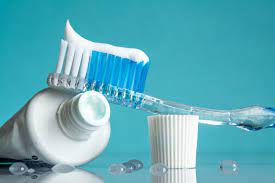Good oral hygiene routine, incorporating appropriate nutrients in your diet and regular dental checkups can go a long way in maintaining good oral health. A dentist plays an important role in educating you about the importance of nutrients. If you haven’t consulted one, find a dentist near you as soon as possible.
Healthy Teeth and Gums
Now, let’s look at 5 useful nutritional strategies which can help you maintain healthy teeth and gums.
Fluoride
The amazing benefits of this element are well known for healthy teeth. It helps prevent decalcification, i.e. it promotes effective absorption of calcium which is important for strong teeth.
It acts specifically on the surface of teeth and the fluoride found in saliva can help promote remineralization of enamel – the outermost protective covering of teeth. Brush twice daily with a toothpaste containing fluoride.
Probiotics
Bacteria found in fermented foods may help suppress the growth of harmful bacteria and germs in the oral cavity and for healthy teeth. Some studies show that consuming fermented foods may be linked with a reduced risk of periodontal diseases.
Pine Bark
Chewing on pine bark or sap has been shown to reduce the formation of plaque and bleeding in gums and good for healthy teeth. It might surprise you but people in ancient times used this technique to keep their mouth clean before more sophisticated ways were invented.
Superfoods
Include superfoods in your diet which promote healthy teeth and gums. For instance, cranberries, blueberries, raspberries, black rice, and red cabbage are rich in anthocyanin which may help prevent the growth and attachment of harmful pathogens on host tissues including teeth.
Anthocyanin also helps fight oral cancer. Arginine is an important amino acid which can disrupt the formation of plaque and reduce the risk of cavities. Meat, soy, and nuts are good sources of arginine. Polyphenols can slow the growth of plaque-causing bacteria thus preventing cavities, bad breath and gum diseases. Flaxseed, cocoa, berries, and tea are rich in polyphenols.
Green Tea
This power packed drink controls bacteria and lowers the acidic level of saliva and dental plaque. Its anti-inflammatory powers can help control periodontal disease. The antioxidants properties of green tea can help protect against cellular damage and slow down the progression of oral cancer.
- Calcium – Important for tooth structure. May also enhance enamel remineralization.
- Protein – Necessary for tooth structure, connective or mucosal tissue development and immunity.
- Folate– Low levels are associated with periodontal diseases. It is vital for immune function and development of connective tissues.
- Vitamin C – Vital for collagen maturation and maintaining the structural integrity of periodontal ligament.
- Omega – 3 Fats – Modulates the inflammatory response and is instrumental in development of connective tissues and immune function.






